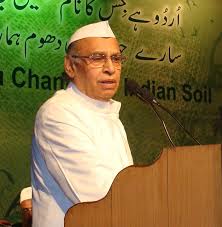
Masood, Minister of Health in the VP Singh government between 1990 and 1991, was held guilty of fraudulently nominating undeserving candidates to MBBS seats allotted to Tripura in medical colleges across the country from the central pool.
Special CBI Judge J P S Malik held Masood guilty of offences under the Prevention of Corruption Act and IPC Sections 120-B (criminal conspiracy), 420 (cheating) and 468 (forgery). He has, however, been acquitted of the charge under Section 471 IPC (using as genuine a forged document).
Masood's conviction is the first case after the July 10 Supreme Court judgement that struck down sub-section 4 of Section 8 of Representation of the People Act, under which incumbent MPs and MLAs can avoid disqualification till pendency of the appeal against conviction in a higher court. The appeal has to be made within three months of the conviction.
Congress member in Rajya Sabha and a party Working Committee member, Masood is all set to be disqualified under the provisions of RP Act that disqualifies anybody who has been convicted under sections of various laws including the Prevention of Corruption Act, 1988.
The quantum of punishment on Masood will be pronounced on October 1. The provisions under which Masood has been convicted attract imprisonment upto seven years.
66-year-old Masood has been held guilty on same counts in two other similar cases.
The three cases in which the Congress leader has been convicted form part of the eleven similar cases registered by CBI in 1996.
Besides Masood, the court has convicted on similar counts former top bureaucrats Gurdial Singh and retired IAS official Amal Kumar Roy, the then secretary of Tripura Chief Minister Sudhir Ranjan Majumdar, in six and five similar cases respectively.
Nine students who had fradulently got admission in the medical colleges have also been convicted for cheating. Two of them, including Masood's nephew, were juvenile at the time of the offence and their case had been transferred to the juvenile justice board on January 25, 2007.
The then Chief Minister of Tripura Sudhir Ranjan Majumdar and then health minister of the state, Kashi Ram Reang were also accused in the case. They passed away pending trial.
Masood had between 1989-91 illegally and fraudulently, in conspiracy with the then resident commissioner of Tripura, Gurdial Singh, nominated his nephew (who was a juvenile at the time of the offence), one other (also a juvenile) and Sachidanand Dwivedi to seats allocated from central pool for students of Tripura.
Sachidanand, one of the three students who secured admission in medical college through Masood, has also been held guilty for conspiracy, cheating, forgery for purpose of cheating, and also under the provisions of PC Act.
He was, however, acquitted of section 471 IPC (using as genuine a forged document).
In its charge sheets against Masood and others, the CBI had said that Tripura does not have any medical college of its own.
"Consequently some MBBS and BDS seats are allocated every year from central Pool by the Ministry of Health & Family Welfare, Government of India in various medical colleges across the country like Bhagalpur medical college, Bihar, Patliputra college (Dhanbad) and Gwalior Medical College (MP) etc," CBI counsel V N Ojha had told the court.
These seats are made available to Tripura for allotment to eligible students from the state on the basis of merit and only those students are eligible for taking the examination who are permanent residents of the state or whose parents have been residing there or are employees of Tripura government.





Comments
Add new comment